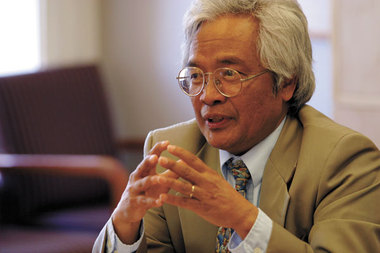Rationale For GLCs: Leveling the Economic Playing Field

You cannot expect government prosecutors and regulators to go after these GLCs as these individuals would be eyeing their cushy post-retirement assignments in these companies.
M. Bakri Musa
The Malaysian economic playing field is still far from level. It is not only tilted but also littered with bumps, debris and potholes to trip and discourage new players. In the past this unevenness and roughness were primarily the result of the predatory practices of existing major players, primarily colonial enterprises and a handful of Chinese-owned companies. With the colonials in charge, this state of affairs was tolerated if not encouraged. After all the victims were the natives and beneficiaries, colonial enterprises.
Today the field is tilted by these GLCs. In a perversity not appreciated, the sheer size of these GLCs means that they too pose significant anti-competitive threats, made worse as Malaysia lacks effective anti-trust laws. Even if there were, these companies were protected. You cannot expect government prosecutors and regulators to go after these GLCs as these individuals would be eyeing their cushy post-retirement assignments in these companies.
This brings up another salient point. Dangling the possibility of these post- retirement appointments has two negative consequences. Firstly it makes senior civil servants a compliant lot; be too aggressive in challenging the stupid ideas of their political superiors and those civil servants would blow their chance of a choice post-retirement job in a GLC. Those just-retired senior public servants who are critical of the government’s policies are the ones not offered a plumb job in a GLC or statutory body.
Secondly, and this is the direct result of the first, these companies are then insulated from tough scrutiny at the hands of regulatory agencies. These GLCs play by their own set of rules, immune to public pressure and the country’s laws.
Consider this. The caliber of Malaysian former Attorneys-General is such that they could not survive in the private sector after their retirement. Their only salvation would be a cushy appointment to these GLCs; hence their reluctance to prosecute on the shenanigans of 1MDB, for example.
These GLCs are not the answer; they are in fact part of if not the problem.
The need for making the economic and market environments fair and competitive is as valid today as it was during Tun Razak’s days. Perversely today, these GLCs are replacing those old colonial competitors by behaving in the same predatory practices and crowding out other legitimate new entrants, both Malay and non-Malay. The problem is compounded by the fact that these GLCs get preferential treatment in government contracts.
A more effective approach to leveling the economic playing field is to open up the marketplace. That is, liberalize the economy. With an influx of new participants, including foreign ones, the field would be stamped flat.
The arrival of giant supermarket chains like the Japanese Jusco and Yaohan, as well as the French Carrefour, revolutionized the retail market and provided Malaysian consumers with superior products, services, and choices. Imagine if we were to relax certain restrictions further and let in such major “box stores” like Costco and Wal-Mart. That would be a boon not only to retail customers but also those small-time pasar malam hawkers. They would have a competitive source for their supplies and inventories. We would effectively liberate them from the stranglehold of the ethnic wholesalers. Letting in new competitors, local and foreign, would break the monopolistic hold of these GLCs.
The government would also benefit from such a move through lower contract costs. Right now public projects have inflated prices because the GLCs have no effective competition and the government favors them. In part this strategy is intentional; it is a form of corruption, subtle but nonetheless corrosive, as these GLCs are then expected to make “donations” to the ruling party. Examples abound, from the massive Port Klang Free Trade Zone project with its ballooning price tag (now in bankruptcy), to the new hospital in Shah Alam that is still far from being completed five years after its scheduled opening, and with its ever escalating costs. The mother of all GLC boondoggles is the 1MDB. We do not as yet have a full accounting of that except that it is under active investigation in no fewer than five countries and saddling Malaysia with humungous debt.
Malaysian GLCs would benefit from greater competition. Consider Japan. The industries there that are truly competitive and able to dominate global markets are not in the financial sectors, which are highly protected at home, but electronics and car manufacturing, which are not.
Exposed to intense competition at home, they become hardy and nimble, able to take on the world. On the other hand, Japanese banks, which are protected by a benevolent government, are flabby and unable to compete abroad.

